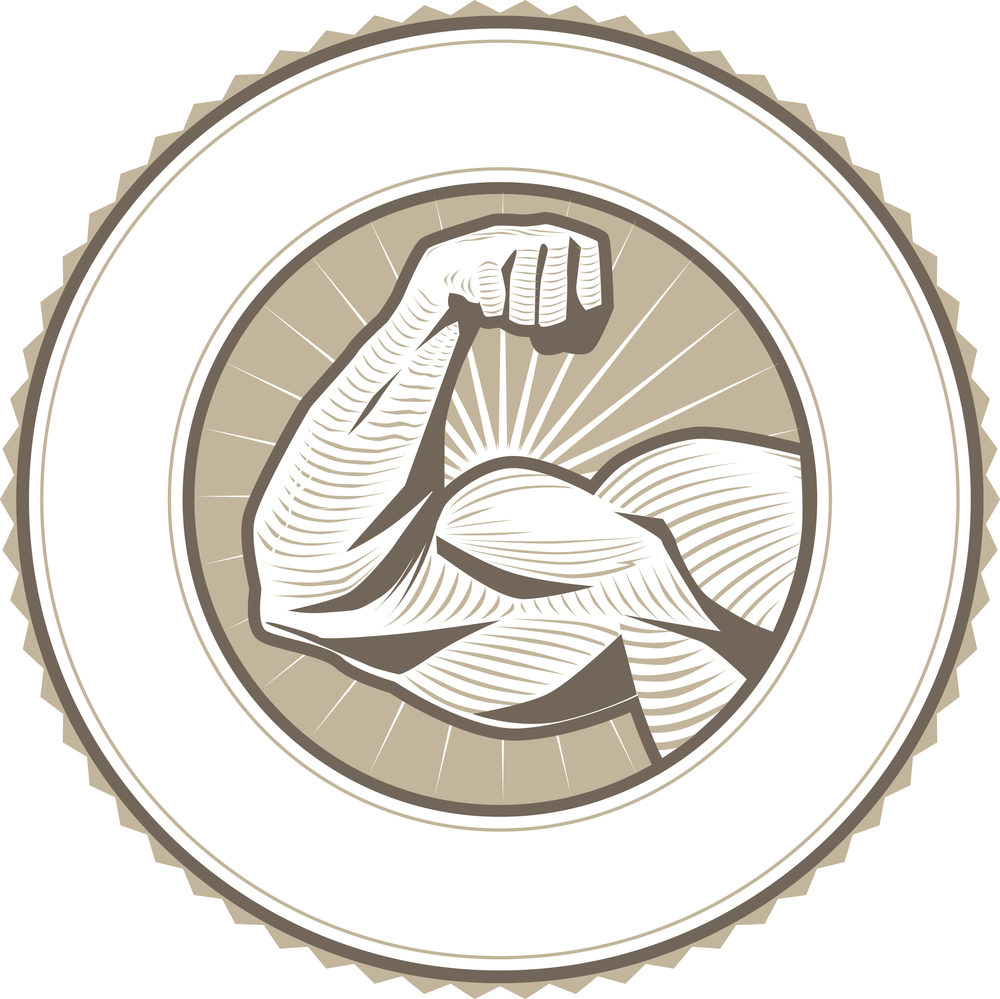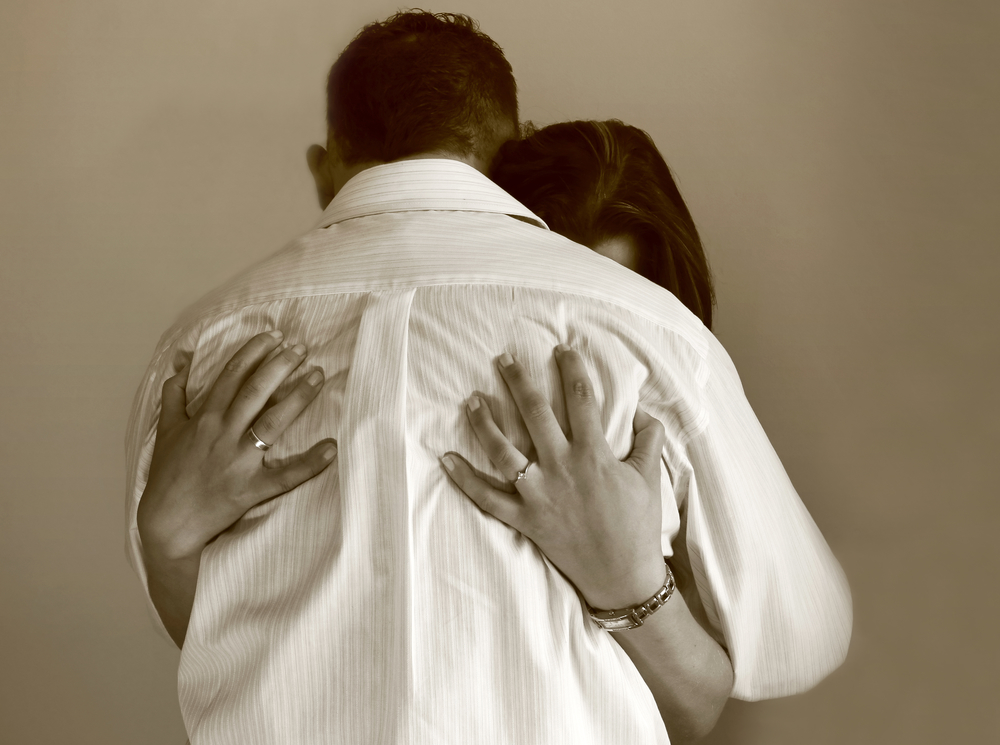When I turned 30, I decided to focus on my mental health, which included spending six months in therapy. For a while I didn’t tell anyone, not even my inner circle. When I did start telling people I noticed that the men in my life had two types of reactions.
While many were supportive, a few were not. Four conversations stand out:
- Over lunch, a childhood friend tells me, “It’s good that you’re taking care of yourself, but keep in mind that therapy is mostly entertainment. It doesn’t really do much.”
- At a party, a college friend, now a lawyer, responds, “You can talk to a psychologist if you want to, but it’s not really necessary. Just give me a call when you need to talk. I can help you.”
- Walking home from the gym, two of my friends have opposite reactions. One is encouraging. The other responds, “I don’t think you should talk to a psychologist.”
“Why?” I ask.
“Because it’s weak. Men should deal with their problems on their own. You’re smart and successful. You don’t need help.” - I call a friend while I’m on a speaking tour and on the verge of breaking down. He tells me, “You don’t need a therapist. I mean, if you go they’ll find something wrong with you and try to fix you, but that’s because it’s their job. Dude, look at you… you just got a standing ovation from a crowd of 800 people. You’re the last person who needs a therapist.”
On every count, these men were wrong:
- I did need professional help rather than a friend’s advice.
- Though I was “successful” when I entered therapy, my professional success didn’t have much to do with my mental health.1
- Leaning into the therapeutic process required more courage and strength than I could have anticipated; it certainly didn’t feel weak.
We could easily dismiss these men as insensitive or emotionally handicapped, but they aren’t. They’re thoughtful, loving people who are consistently there for me and remain close friends to this day.
They were reacting to the stigma around men’s mental health and were trapped by outdated models of masculinity.
This is the first of two articles in a series on mental health. In this article, I’ll discuss why it’s so taboo for men to deal with their mental health issues and what we can do about it.
In the second article, I’ll discuss how to find a great therapist and my experience working with a horrible one. I’ll also cover alternative modalities for healing, including life coaching, self-help, and psychedelics.
The chasm between the inner and outer world

To a casual observer, I didn’t appear to need therapy.
My business was booming, hundreds – sometimes thousands – of people attended my speeches, my social life was a bit too much fun, and I was at the center of a robust professional network.
Externally, my life was perfect.
Internally… not so much.
I feared that I might never be able to form a healthy relationship with a woman I admired, I struggled to enjoy my success (I was sure it was going to slip away), and my self-worth was shot to shit. 2
Though my inner and outer worlds seemed to describe two entirely different people, they don’t, they describe me in my late twenties.
People tend to believe that unless you exhibit the outward signs of mental illness (talking to imaginary people, intense anxiety, crippling depression, addiction, etc.) there’s no reason for you to seek therapy.
In reality, that’s simply not the case.
Many people who flourish externally are plagued by cruel demons internally. Many people believe that their demons are component parts of themselves. They’re trapped feeling that their pain can’t be cured, controlled, or cast away. In my experience, that’s just not true. As far as I can tell:
- You are neither bound nor defined by your pain. Healing is always possible. A good therapist can speed up the process.
- Virtually all of us can benefit from the care of a good therapist. If you’ve been toying with the idea of scheduling an appointment, stop putting it off. Your future self will thank you.
- If you’ve been dealing with persistent psychological problems, seek the help of a professional, even if you think it will be fruitless. It’s unlikely that enduring problems will go away on their own or respond to self-help.
Outdated concepts of masculinity

Most men learn that being in touch with one’s emotions is akin to weakness.
When F*, a close friend, was six years old, his Dad told him, “You know, one of the great parts about being a guy is that we don’t need to deal with our emotions like women do. We don’t have them.”
Another friend, M*, turned to his father for relationship advice. His father said, “It’s a lot easier for men to have healthy relationships because men don’t have strong emotions and don’t need to talk about their emotions.”3
These stories aren’t rare. The vast majority of men have been told that it’s better to ignore, suppress, or deny negative emotions rather than confront them head on.
Across society, men are faulted for being emotional. They’re told to get a grip on themselves and encouraged to “Be a man.”
Men are praised for their “emotional mastery” when they act unaffected by touching or difficult events. This is why we see stoicism – an emotionally stunted philosophy that died out thousands of years ago – regaining popularity in modernity.
We are never taught that raw vulnerability leads to enduring strength.
The end result is a profound sense of shame around difficult emotions, leading men to disconnect from themselves.
Many would rather live with an extreme amount of pain instead of doing the hard work of healing because they are afraid of seeming weak. Far too often, men forget that the more we heal, the more strength we develop.
The stigma around men’s mental health

There is a huge stigma around mental health for both men and women.
If I broke my arm, everyone I know – literally everyone – would urge me to go to the hospital so that I could heal under the supervision of a trained professional.
However, if I were suffering from mental pain, especially pain that is difficult to understand or explain, few would encourage me to seek help. In fact, some would actively discourage me.
It’s tempting to blame everyone else in the world for the stigma around mental health, but it’s not quite that simple. We tend to be open about sharing our physical pain but not our mental pain. When we do, we often water it down.
In fact, most of us feel like expressing our mental anguish is risky. We feel like letting other people know that we sometimes struggle with mental health exposes us to social and professional liabilities. Many can’t even admit their struggle to themselves.
Unfortunately, we are all exactly wrong. Improving your mental health improves every other area of your life. My business runs more efficiently and more profitably than before. My relationships are richer, deeper, more stable, and more fun. And overall, life feels more vivid, exciting, and engaged.
The trick is to be honest with yourself about your mental health and to seek help as needed. The alternative is to live in denial, subtly sabotaging yourself moment by moment, living with more pain than is necessary and perpetuating the mental health stigma.
If – and this is a big if – you ever get to the point where you’re comfortable sharing your experience with others, do so. This will help normalize your inner life while chipping away at the stigma. However, you should be selective about what you share and who you share it with. There’s no need to leave your comfort zone before you’re ready.
Advice for supporting the men in your life

We’ve created a culture that largely fails to nurture people’s emotional needs. Many people are struggling just to keep their heads above water while simultaneously telling the world that everything is just great!!!
If you want to live in a world filled with emotionally fluent humans, we need to heal the wounds that are holding us back from connection, empathy, and courage.
This starts with taking good care of yourself and valuing yourself enough seek the help you need. Why deal with more pain or suffering than is absolutely necessary?
From there, gently encourage others to do the same. As more individuals heal, the world we co-create will begin to heal too.
Footnotes
- Success and happiness are two very different skills. While there is some correlation (at least for me), it’s much less significant than we’ve all been led to believe
- As for how I’m doing today: I deeply admire my girlfriend, L*. I feel like I have a healthy sense of self-worth, and the modest success I’ve achieved feels like something I can enjoy and celebrate. In a word, I feel healthy.
- M*, to his credit, responded, “I don’t know, Dad; talking about my emotions has gotten me laid more than once.” This made his Dad blush.
Thank you.
You’re welcome, Cat.
The heart and soul you put into your writing and sharing your experience is deeply appreciated. I have a very close male in my life who really needed to hear these words…from a man. Thank you for what I received personally out of this post and for the gift I can pass along. Such an important and often untouched topic. Big hug and much love. #bravesoul <3
Oh my God, Cindy – thank you. I was telling a few people that though this article felt risky to me, if it helped just a few guys, that it would probably be worth it. I’m touched that this article meant something to you, and may mean something to someone you care about. It’s hard for me to ask for much more. Big hug and much love right back at ya. 🙂
Digging this Jason! 🙂 <3
Thanks brother. Hope you’re well out there in the world. Big love.
You hit the nail right on the head mate. Having grown up in a society (Ireland in the 70s) that was repressed in every respect, the last bastion of self respect that a guy could retreat to was that image of being a man’s man, Clint in “Dirty Harry”. In a time where career prospects were few, any sort of emotional instability was a further disqualification, one simply couldn’t show vulnerability. It was the same story in respect to relationships. Our paradigm and indeed mantra, was ” women look for tough self reliant men”. I shouldn’t go on too long here, but I have to tell this story and then I’ll come to the point. I used to run a couple of Irish Pubs here in Germany in the mid 80. At one point about 15 years ago my brother I had just been dumped by our respective long term Girlfriends. We did however have the advantage of running a very popular bar which was frequented my a lot eligible women. One night I came up with yet another creative idea to break the ice with some new and rather pretty customers. It went like this: ” Excuse me, we are doing this survey about, “What qualities does a woman look for in a man?”. I asked them then to list them in order of priority from one to ten. There may have been some subliminal desire to gain this knowledge for my own needs, but it was really just for fun. We gave the girls a cocktail on the house for participating, and had a laugh, so we continued to do this most evenings for about a year until it became almost a cult at our place. After a while I noticed a pattern emerging particularly in the first two places of priority, can you guess what they were? First place: “Geborgrnheit” which English means Security ! Or to be given the feeling of security. In second place was; “Selbsbewust” which means self reliant or confidence”, which is essentially the same as the first one. Not surprisingly I met my now wife during one of these interviews, who also placed Geborgenheit” in first place. About three years ago I started to suffer from severe anxiety probably related to my changing professional circumstance, and I took me about a year to eventually confide to my wife that I was suffering and maybe I needed therapy. Perhaps it was the years of repression in Ireland and indeed the results of our fun surveys in the pub, but I can understand your reticence to write the article. The point is; it appears our own feelings of what it is to be a man seems to be shared by women as well. I agree that communicating with your partner or indeed with friends does need to be handled with discretion, because I may have reacted the same way a few years ago. But more revelant is how to get men to change their paradigm before it’s too late, and avoid unnessecary suffering. Perhaps its not just a cultural problem but also an instinktive one, and maybe the best place to start the education is to try to change women’s perspective too. This puts the level of the problem in perspective.
Thanks Jason, love the words, keep em coming.
Kind Regards, Ciaran
Ciaran – first of all, love the story. That’s a fun experiment, and a clever ice breaker. It’s funny how one unfortunate event – a break up – led to massive good fortune – your wife! I wonder what the women you spoke to meant when they said security. I wonder if they also meant emotional security, in addition to physical. If so, I’d argue that becoming emotionally fluent and courageous then would be an avenue to deeper security. Related: I think it’s cool you told your wife you may need help and then got it. I don’t know, but I imagine that brought you closer together.
And you know what? You’re totally right: it’s wayyyy easier to change the perspective of men, when we also have the support of women. It is – as always – a team effort.
Thanks man, I really appreciate your support, story, and time.
That was a good idea. I wonder how the survey would go in America? It think the responses would be different in rural vs urban area…and bars where younger people vs middle aged or older would go…It would be an interesting experiment
If you can’t see it, it doesn’t exist, right? Wrong!
I’m guessing most people’s mindset is based a lot on superficiality and ease. I’m also guessing that treating physical wounds is more obvious than treating the mental ones because we can see them and we don’t have to make any effort in that direction. Moreover, it isn’t that we’re the only one who sees our physical wounds – these can be seen by others too, and it makes us comfortable with treating them.
If you treat something that only you can see, you are the crazy one.
It was such a great reading, Jason. Thank you!
Thanks, David, I appreciate that. And I’m with ya – I think a lot of people will try to just distract themselves from any sort of emotional problem, telling themselves, “If I can’t see it, it doesn’t exist.” I think eventually though, that stuff comes back to bite you in the ass.
Jason,
I so enjoyed your well written article on the stigma of therapy – and you are so smart to discuss this issue for men. It does sadden me that even among millennials, the stigma still prevails. Thank you for helping bring this issue to light as I feel it can help people of all genders as well. I look forward to Part II.
The best to you,
Mrs. L
My pleasure, Linda. And I so appreciate the solidarity. To me, it seems increasingly clear that the way we build a better world, is by building better individuals. For many of us, that requires getting help. Im honored to hear this resonated, and honored to help cast a bit of light. Therapy was literally a life changer in the way that nothing else was for me.
hey jason, my husband is an incredibly intelligent man – passionate, driven, funny – and a devoted husband and father. unfortunately he suffers from major depressive disorder. he has had a few episodes over the last 20 plus years, but in december of 2014 he fell into an episode that lasted 16 months. it was a living hell – for him – and for me and our two teenage children.
i made a decision and a commitment at the onset to be completely open about his disease with my family and our community. i was not going to allow my kids to be stigmatized by his illness. i explained to my kids that some parents get cancer or any number of other diseases, but their dad suffers from depression. i knew some people would be comfortable with my openness and others would not be able to handle the reality of the situation. my husband came to my son’s athletic events and was a shell of himself – but he was there – i would not allow him to be hidden away.
i talked openly about what was going with friends, family and strangers. i was often pleasantly surprised by the depth of compassion many had and the support my family received.
i became my husband’s advocate. we tried multiple therapies – both traditional and experimental. we finally found a treatment that worked for him. he is completely back to himself (for which I am grateful daily). however, the scars remain.
mental illness cannot be brushed under the carpet – and i am so grateful that you were willing to share your experience with mental health related issues given that you have such a far ranging reach.
i am hoping to take my experience as the caretaker and help others in similar situations. depression is a disease – maybe not as tangible as many physical diseases, but just as cruel and heartbreaking.
Nancy – wow. This is awesome. I really like your approach of explaining that some people suffer from cancer, others suffer from depression. That feels accurate to me. With mental illness, we too often believe that people can just, “snap out of it” but that’s so far from the truth. I also think it’s AMAZING that you stood by your husband and helped him find a treatment that brought him back to himself. That’s a beautiful thing. I appreciate your approach to loving the people in your life, and that you shared your story here. Thank you.
Thanks for “getting it”! xo
🙂
This blog is an oasis of calm for me.
This made me smile from ear to ear – I’m so glad to hear that. Thank you. 🙂
My son got disowned by his father an he took it hard all his life an he has identity problems his profession is been an actor now .So now been his Mom I have to learn to teach him to love himself an at the same time I have learn to love myself also …….thank you for your eye opener writings you share blessings to you
Inez – I think it’s beautiful that you want to teach your son how to love himself. He’s a lucky guy to have a mother like you. And I think you’re exactly right – the first step is learning to love yourself so you can model it for him. Good luck on your path and I’m so happy to have you as a reader.